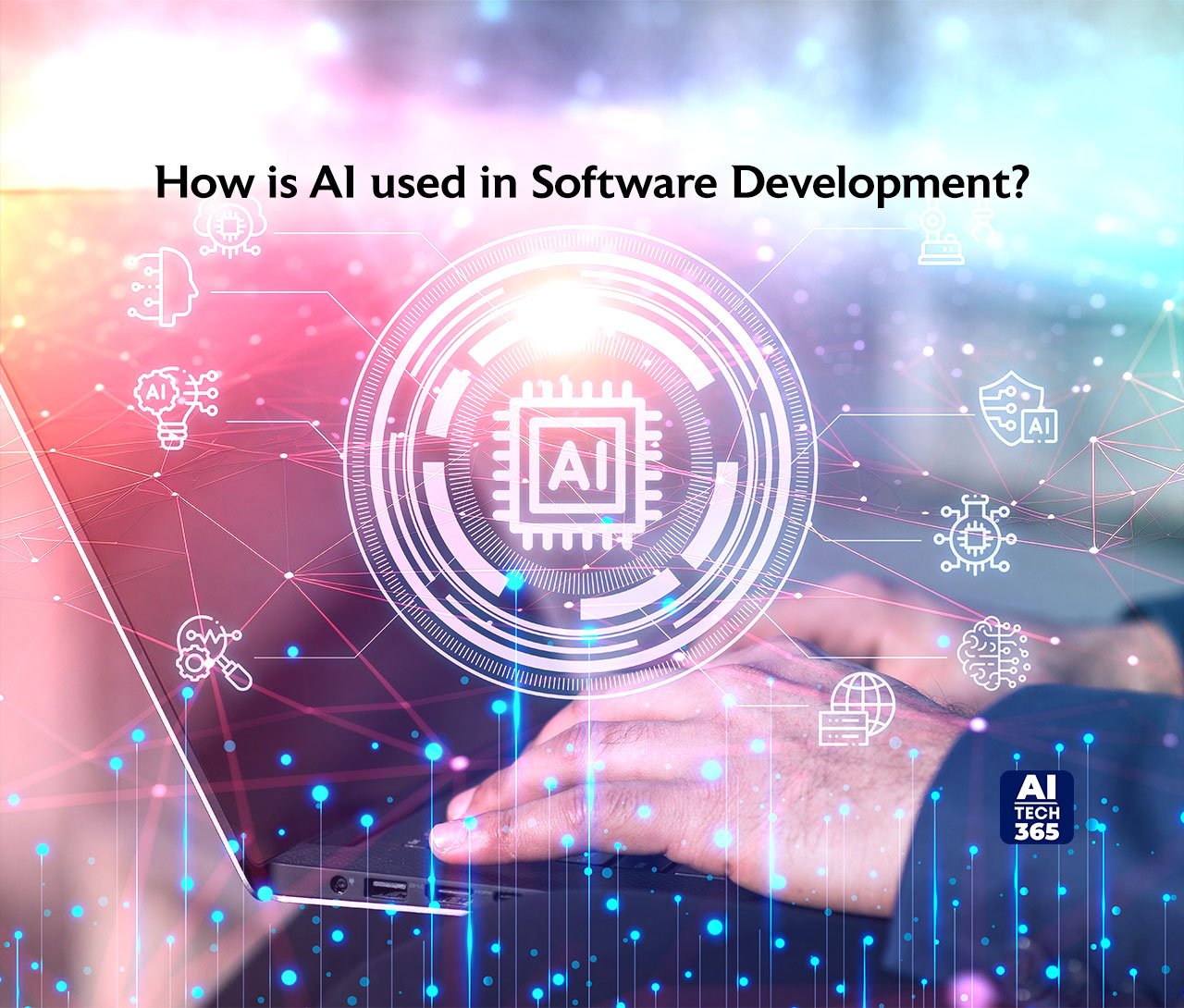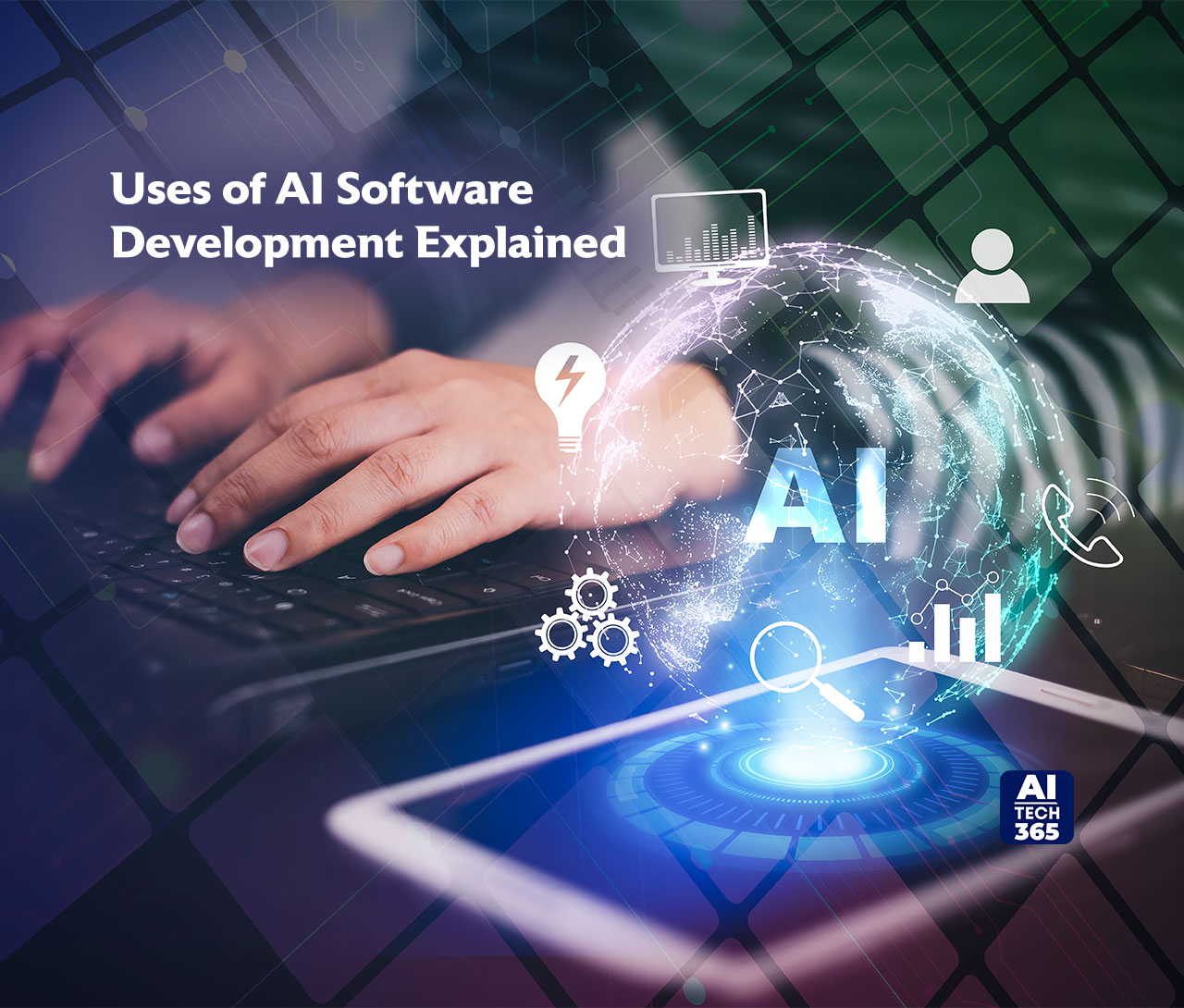In today’s fast-paced digital world, businesses face numerous challenges when it comes to developing efficient and innovative software solutions. Traditional development methods often fall short in meeting the evolving demands of modern technology and the growing expectations of consumers. This creates a pressing need for a transformative solution that can address these challenges head-on.
This is where AI software development, a groundbreaking approach that harnesses the power of artificial intelligence to revolutionize the way software is created comes into play. By leveraging machine learning algorithms, natural language processing, and advanced automation, AI-driven software development offers a game-changing solution to the existing challenges in the industry. Let’s learn everything about it.
How is AI used in Software Development?
AI is being utilized in various ways to enhance software development processes. Let’s delve deeper into each of the mentioned areas:
- AI-Based Programming Assistants: AI-powered programming assistants, such as code completion tools, can analyze codebases, learn patterns, and provide suggestions or generate code snippets to assist developers in their coding tasks. These assistants can automate repetitive tasks, offer code suggestions, and help with debugging and optimization.
- Automation of the Software Development Lifecycle: AI is employed to automate different stages of the software development lifecycle. This includes project planning, estimation, testing, and decision-making. By automating these tasks, AI helps streamline processes, boost productivity, and improve the overall quality of software development.
- Enhanced User Experience: AI is used to improve the user experience in software development. It can analyze user behavior, preferences, and feedback to personalize software interfaces and provide tailored recommendations. This helps create more intuitive and user-friendly software products.
- Accelerated Software Development Lifecycle: AI, particularly machine learning algorithms, can accelerate the software development lifecycle by automating repetitive tasks, optimizing workflows, and improving the efficiency of code development and deployment. This leads to faster development cycles and a shorter time-to-market.
- Code Generation and Completion: AI can assist developers in generating and completing code. AI-powered tools can analyze existing codebases, learn from them, provide suggestions, or even generate code snippets to speed up development. This can significantly improve developer productivity.
- Quality Assurance and Testing: AI software development is used in software testing to automate the identification of bugs, vulnerabilities, and performance issues. AI-powered testing tools can analyze code, simulate user interactions, and identify potential issues before software is released. This helps improve the overall quality and reliability of software products.
- Natural Language Processing (NLP) for Requirements Gathering: AI, specifically NLP, can be used to automate the process of gathering software requirements. NLP algorithms can analyze natural language inputs from stakeholders and extract relevant information, helping developers better understand and implement user requirements.
AI is being used in various ways in software development, from assisting developers with coding tasks to automating the software development lifecycle and enhancing the user experience. Its integration into the development process is revolutionizing the industry and driving innovation in software development.
Uses of AI Software Development Explained
The software development landscape is undergoing a dramatic transformation, fueled by artificial intelligence (AI). AI is not just making waves in finished products; it’s becoming an integral part of the development process itself. Here’s how AI software development is supercharging software creation:
- Development: No-Code/Low-Code AI Platforms: Forget complex coding! AI platforms empower everyone, from seasoned developers to those with no coding experience, to build applications. These platforms offer drag-and-drop interfaces and pre-built components, allowing users to create everything from chatbots to specialized search functions.
- Quicker AI Development: Specialized platforms developing AI applications require a team of experts. Now, AI software development platforms like Google Cloud AI and Microsoft Azure AI provide user-friendly tools and services for the entire machine learning lifecycle. These platforms handle data preparation, model training, and deployment, making AI development accessible to a wider range of developers.
- Smarter Software: AI software development is transforming how software interacts with users. By analyzing user behavior and preferences, AI can personalize interfaces and suggest features, leading to more intuitive and user-friendly experiences. Imagine a software program that anticipates your needs before you even ask!
- Automation Revolution: AI is automating various stages of software development, from initial planning and estimation to testing and decision-making. This frees up developers for more strategic tasks, boosting productivity and ensuring higher-quality software.
- Coding Like a Pro: AI-powered code completion and generation AI is becoming a developer’s best friend. AI tools analyze existing code, recognize patterns, and even help write new code. These tools offer code suggestions, automate repetitive tasks, and assist with debugging, making developers significantly more efficient.
- Intelligent Quality Assurance: AI-powered tools can automatically detect bugs, security vulnerabilities, and performance issues. These tools analyze code, simulate user interactions, and identify potential problems before software is released, ensuring a more robust and reliable final product.
- Understanding Your Needs: Gathering software requirements can be a time-consuming process. AI, specifically Natural Language Processing (NLP), can streamline this by analyzing natural language descriptions from stakeholders. NLP algorithms extract key information, allowing developers to better understand and implement user needs.
AI is not here to replace developers but to empower them. It acts as a valuable assistant, automating tedious tasks and freeing developers to focus on innovation. As AI integration continues to expand, the future of software development promises exciting possibilities, with faster development cycles, smarter user experiences, and a more efficient development process.
8 Benefits of Using AI Software Development
Discover eight impactful ways to leverage AI for enhanced efficiency within your software development team:
- Prototyping: Utilize AI-driven automated code generation to expedite prototyping, fostering rapid iterations and collaboration for innovative software solutions.
- Debugging: Implement AI-assisted bug detection to swiftly identify and address software issues, reducing their impact on development timelines.
- Code Explanation: Leverage AI-powered systems to generate human-readable explanations for code snippets, enhancing comprehension and team collaboration.
- Refactoring Code: Utilize AI-powered code refactoring systems to enhance code quality and maintainability, improving readability, modularity, and efficiency.
- Predictive Analysis: Employ AI-based predictive analytics tools to forecast project outcomes accurately, optimize resource allocation, and mitigate risks.
- Automated Testing: Streamline testing processes with AI automated testing methods, ensuring software functionality, security, and quality with efficiency.
- Documentation: Utilize AI-powered smart documentation generation systems to automate technical documentation, enhancing readability and accessibility.
- Copilot Tools: AI-driven copilot tools such as GitHub Copilot, Codeium, and Whisperer automate repetitive tasks, assist with code scripting, and increase developer productivity.
These AI software development tools empower developers to streamline workflows, improve code quality, and accelerate development cycles. While they provide valuable assistance, human review remains essential to ensure code quality and adherence to project requirements.
Top 5 AI Software Development Tools
- Google Cloud AI Platform: Ideal for scaling machine learning model training and hosting in the cloud, supporting mobile app development with R.
- Tabnine: Enhances coding with AI-driven code completion, ensuring quality and consistency while prioritizing user privacy.
- ClickUp: Offers AI-powered software development tools alongside robust project management features, streamlining workflows with templates, automation, and integrations.
- Sourcegraph Cody: It aids software engineers with code suggestions and efficient codebase navigation, boosting comprehension and productivity.
- Otter: Facilitates code review and documentation tasks for software engineers, automating documentation generation and error identification.
These tools aim to improve productivity, code quality, and efficiency in software development.
Final Takeaway
AI has transformed the software development landscape by optimizing processes, improving efficiency, and enhancing software quality. It offers a range of benefits, from AI-based programming assistants and automated development lifecycles to improved user experiences and code generation. These AI software development tools and platforms empower developers to streamline workflows, automate repetitive tasks, and gain valuable insights from data. By leveraging AI, developers can focus on more complex and creative tasks, while AI assists with code completion, testing, and requirements gathering. This symbiotic relationship between human expertise and AI capabilities drives innovation, enabling developers to build smarter, more efficient, and user-centric software solutions. As AI continues to evolve, staying updated on new technologies will be crucial for developers to harness the full potential of AI in software development and shape the future of the field.


